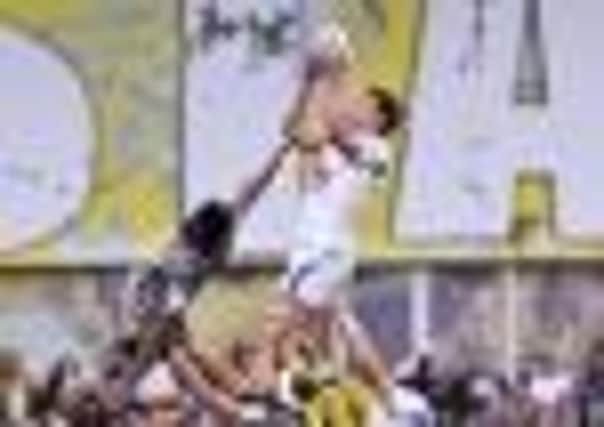Allan Massie: European Cups show veterans doing OK


That announcement indeed makes him more valuable to a club. He won’t be away on Scotland duty in November, February and March. Of course, in the amateur days, it was quite usual for players to continue in club rugby, often for years, after the international selectors had lost interest in them, but there was an assumption that the rigours of the professional game would lead to burn-out and shorter careers. The reverse seems to be happening.
The former England and Lions lock, Simon Shaw, is still a member of the Toulon first-team squad at the age of 40, while Blair’s former team-mate for Edinburgh and Scotland, Nathan Hines, is an important figure in the Clermont-Auvergne XV bidding to win the Heineken Cup.
Advertisement
Hide AdAdvertisement
Hide AdIndeed, wherever you looked last weekend in the Heineken and Amlin Challenge Cup matches, there were players retired from the international game, or deemed surplus to its requirements, plying their trade, and often shining. Who hammered the nails into Leicester’s coffin but Jonny Wilkinson? Ten years after he kicked England to World Cup glory with a drop-goal from his right – that is to say, wrong – foot, he finished off the Tigers in the same way. Meanwhile, a few hours earlier at The Stoop, Ronan O’Gara, whose rugby obituary was being pronounced by many, including myself, only a few weeks ago, was displaying all his old mastery as he steered Munster to victory over Harlequins. That match must surely have settled the Lions captaincy. Who can it be now but Paul O’Connell?
Sunday’s two Heineken quarter-finals showed once again that you don’t need tries to have a gripping match. Sadly, all four quarter-finals also showed that the readiness of referees to award a penalty to a scrum that is driving forward with no intention of releasing the ball to its backs is in danger of making a nonsense of the game.
The sooner the laws are adjusted so that we get back to the understanding that the scrum is a means of restarting the game, usually by heeling the ball, the better.
Incidentally, there was one moment in the Challenge Cup match between Gloucester and Biarritz which demonstrated the absurdity of current refereeing practice, or, if you prefer, the incompetence of some referees or their indifference to the laws of the game. A line-out throw by the Biarritz hooker was judged to be squint – which indeed it was, if only marginally so. A scrum was then called. The Gloucester scrum-half promptly fed the ball into his second-row, and the referee was happy to let this go. The second offence was more blatant than the first but went unpunished. Ridiculous.
Still, there was some lovely stuff in that match from both teams. I always take every chance on offer to watch Biarritz, if only to see Dimitri Yachvili in action. He has his bad days like almost everyone, but when he is on song he is a joy to watch. He seems to stroll through a game, controlling the action serenely, his reading of the play astute and usually a few seconds ahead of everyone else.
There were two lovely examples of his vision at Kingsholm: first, the sublime little chip which gave the Biarritz left-winger the easiest of tries – all he had to do was catch the ball; second, that moment when, from a turnover deep in the Biarritz 22, Yachvili spotted space on the right and slung out a pass that travelled more than 30 yards, to be collected by the flying Ngwenya, who galloped free and passed to Benoit Baby to score.
No doubt Yachvili spends time in the gym, but he has never bulked up. Indeed, he is one of those, like Mike Blair and Chris Paterson, whose body shape looks much as it did when he first played professional rugby more than a dozen years ago. He is a true master, and I would have young Sean Kennedy, the most promising scrum-half in Scotland, apply himself to the study of tapes or DVDs of Yachvili’s best games. He couldn’t fail to learn much about tactics, positional sense, the organisation of his forwards, and reading the flow of play.
On a final note: the Heineken is once again proving the most compelling of tournaments. Any of the four teams left in it might still win, though Clermont-Auvergne are deservedly favourites to do so.
Advertisement
Hide AdAdvertisement
Hide AdMeanwhile, it is essential that some compromise is found between the English and, to a lesser extent, French clubs who want the format changed, and the Rabo Pro12 clubs who are resisting their demands. We shall all be the poorer if this great competition is wrecked.